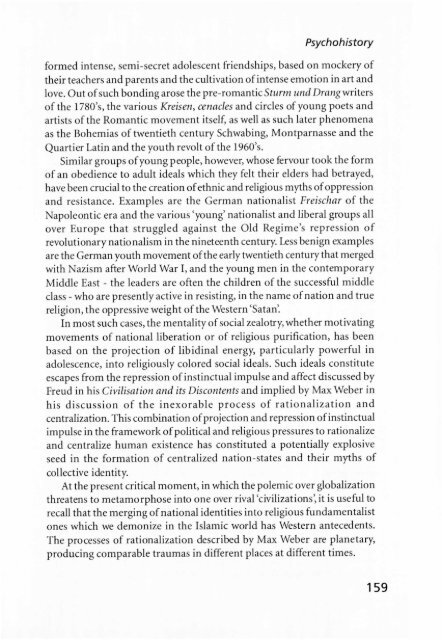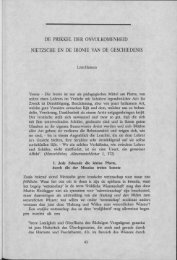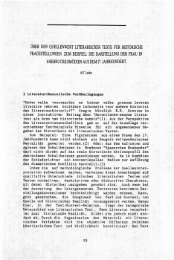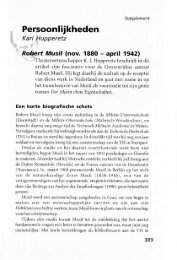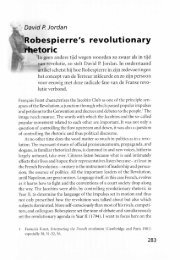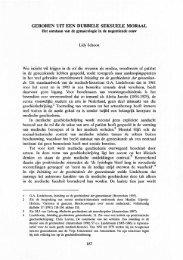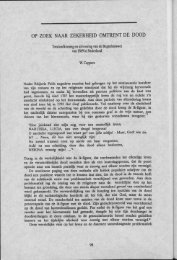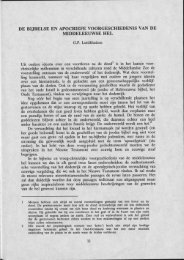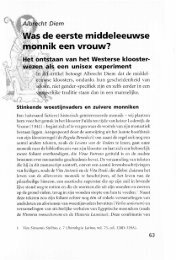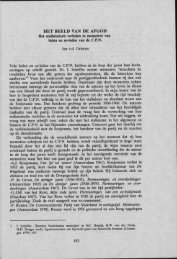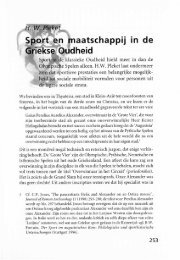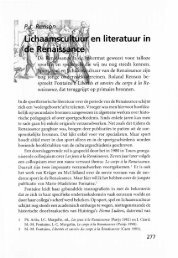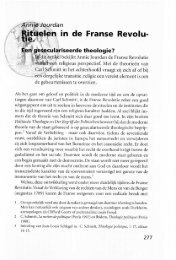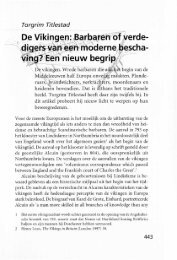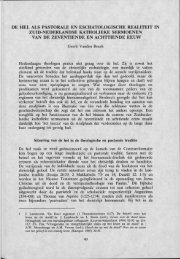di e'nsion - Groniek
di e'nsion - Groniek
di e'nsion - Groniek
Create successful ePaper yourself
Turn your PDF publications into a flip-book with our unique Google optimized e-Paper software.
Psychohistory<br />
formed intense, semi-secret adolescent friendships, based on mockery of<br />
their teachers and parents and the cultivation ofintense emotion in art and<br />
love. Out ofsuch bon<strong>di</strong>ng arose the pre-romanticSturm und Drang writers<br />
of the 1780's, the various Kreisen, cenacles and circles ofyoung poets and<br />
artists of the Romantic movement itself, as wel! as such later phenomena<br />
as the Bohemias of twentieth century Schwabing, Mon tparnasse and the<br />
Quartier Latin and the youth revolt of the 1960's.<br />
Similar groups ofyoung people, however, whose fervour took the form<br />
of an obe<strong>di</strong>ence to adult ideals which they felt their elders had betrayed,<br />
have been crucial to the creation ofethnic and religiou myths ofoppres ion<br />
and resistance. Examples are the German nationalist Freischar of the<br />
Napoleontic era and the various 'young' nationalist and liberal groups all<br />
over Europe that struggled against the üld Regime's repression of<br />
revolutionary nationalism in the nineteenth century. Less benign examples<br />
are the German youth movement ofthe early twentieth century that merged<br />
with Nazism after World War I, and the young men in the contemporary<br />
Middle East - the leaders are often the children of the successful middle<br />
class - who are presently active in resisting, in the name ofnation and true<br />
religion, the oppressive weight ofthe Western 'Satan'.<br />
In most such cases, the mentality ofsocial zealotry, whether motivating<br />
movements of nationalliberation or of reJigious purification, has been<br />
based on the projection of libi<strong>di</strong>nal energy, particularly powerful in<br />
adolescence, into religiou Iy colored social ideals. Such ideals constitute<br />
escapes from the repression ofinstinctual impulse and affect <strong>di</strong>scussed by<br />
Freud in his Civilisation and its Discontents and implied by Max Weber in<br />
his <strong>di</strong>scussion of the inexorable process of rationalization and<br />
centralization. This combination ofprojection and repression ofinstinctual<br />
impulse in the framework ofpolitical and religious pressures to rationalize<br />
and centralize human existence has cOl1stituted a potentially explosive<br />
seed in the formation of centralized nation-states and their myths of<br />
collective identity.<br />
At the present critical moment, in which the polemic over globalization<br />
threatens to metamorphose into one over riyal 'civilizations', it is useful to<br />
recal! that the merging ofnational identities into religious fundamentalist<br />
ones which we demonize in the Islamic wor/d has Western antecedents.<br />
The processes of rationalization described by Max Weber are planetary,<br />
producing comparable trauma in <strong>di</strong>fferent places at <strong>di</strong>fferent times.<br />
159


